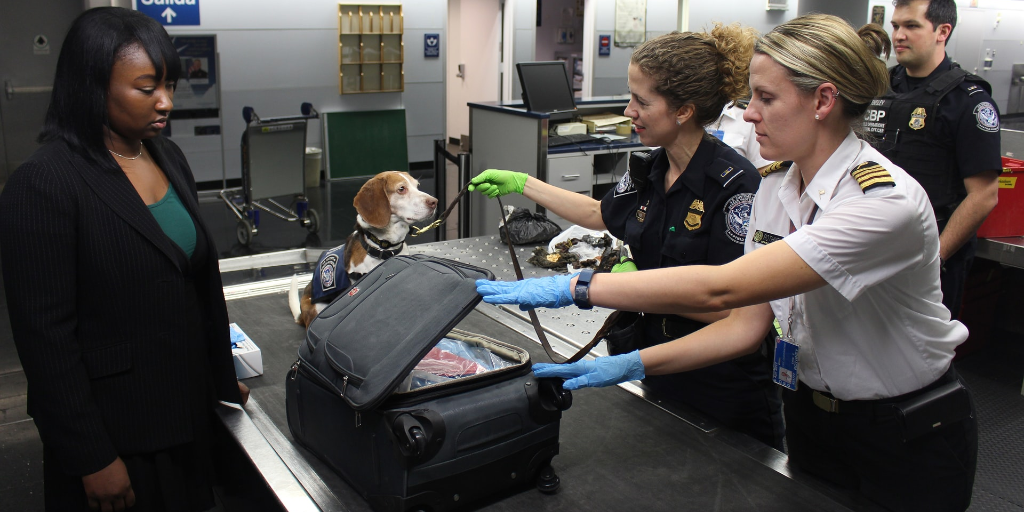Pass through
Today’s expression is “to pass through.” It’s a phrasal verb. What does it mean to “pass through” sometime?
I used it in a fairly typical manner in today’s lesson about the explosions in Beirut. I said that about sixty percent of Lebanon’s imports pass through the Port of Beirut—at least they did before the explosion closed the port. Sixty percent of Lebanon’s imports passed through the port.
When something is on a journey, and goes through an area without stopping for a very long time, then it passes through that area. The goods that Lebanon imports from other countries travel through the port. They arrive at the port, they are unloaded from ships, loaded onto trucks, possibly stored in warehouses for a short period of time, but they are soon going to their destination. So we say, these goods pass through the port. They go through it, but they don’t stop for a long time.
There is a pair of tunnels that trains use to go from New Jersey to New York City. The tunnels were built in the very early part of the 20th Century, so they are over 100 years old. Over 400 trains pass through those tunnels each day! It’s incredible how busy those tunnels are, how many commuters go from New Jersey to New York on those trains. And the tunnels are leaking and breaking down, so they need to be either repaired or replaced because so many people use them. Four hundred trains pass through those tunnels ever day.
Those trains end up at Pennsylvania Station, the busiest train station in the country. Believe me when I say, nobody goes to Penn Station to voluntarily spend time! Everyone who goes to Penn Station is just passing through: they are on their way to somewhere else.
Speaking of tunnels, it is possible to drive from Britain to mainland Europe. You can load your car onto a special train that takes you and your car underneath the English Channel from England to either France or Belgium. You and your car pass through the tunnel aboard the train. In these times of COVID, the British government has said that if you go to Belgium and return to the UK, you need to self-quarantine. But the UK government said that if you only pass through Belgium, and if you don’t get out of your car while you’re passing through, then you don’t have to self-quarantine. So now I imagine the gas stations and restaurants just on the other side of the border in Germany or the Netherlands are going to be doing a brisk business with British travelers preparing to cross the border.
Speaking of car trips, you might stop for lunch in a small town along the way. Imagine you walk out of the restaurant and someone asks you for directions. You don’t know this town—you just stopped for lunch. You might tell that person, “I’m sorry. I’m only passing through.” You are only passing through because you just stopped briefly before continuing your journey.
You can say a storm will pass through the area. Usually thunderstorms don’t stand still, they’re always moving. So you can say, “A storm is likely to pass through this afternoon, but the evening should be clear.”
Quote of the Week
Today’s quote of the week is from Warren Buffet, a famous investor. His nickname is the Sage of Omaha because he lives in that small city, Omaha, Nebraska, and he’s known for his ability to make good long-term, level-headed investing decisions. Here’s the quote: “The most important thing to do if you find yourself in a hole is to stop digging.”
He was talking about investments, but I think it applies more generally in life, too. Sometimes we hang onto things or we keep doing things even though we know it’s not good for us. The best first step is to stop digging—stop doing that thing, whatever it is, that has put you in the hole. Only then can you worry about how to climb out. Here’s the quote one more time: “The most important thing to do if you find yourself in a hole is to stop digging,” said the investor Warren Buffet.
See you next time!
And that is all for today. Congratulations on making it to the end of another Plain English lesson. Coming up on Thursday, the clock is ticking on Tik-Tok and WeChat in the United States.
If you enjoyed today’s lesson, you can find even more Plain English resources on our web site. Test your knowledge with our episode quizzes, watch an in-depth video lesson, practice what you learned, and more. All that is available at PlainEnglish.com.
Learn more expressions like this

